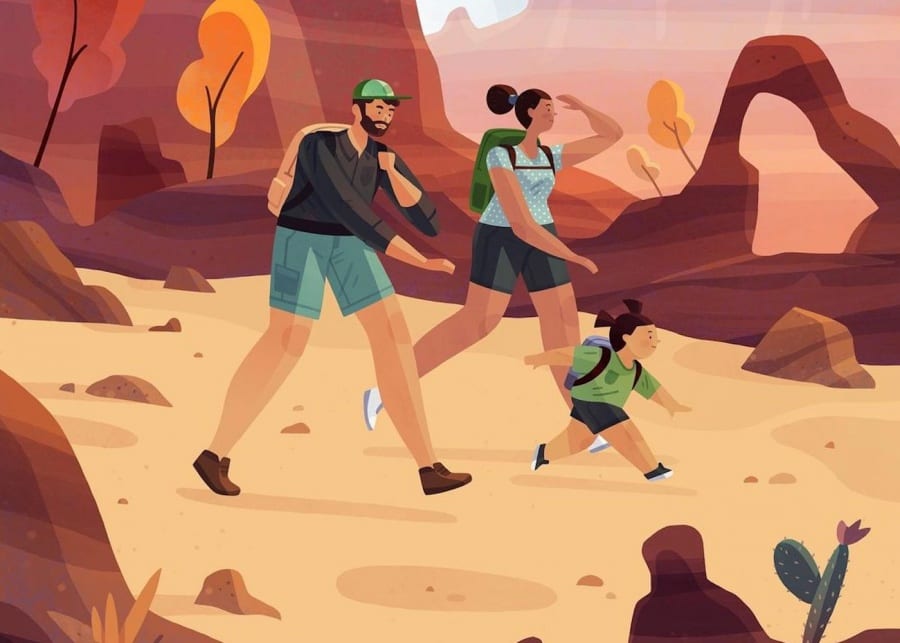
Never have I ever used the Pythagoras Theorem in real life, but learning it was rather fun (yes, I called Math fun). Looking back, here are skills I wish I learned in school.
The one incentive that got me excited for school around the time of August was shopping for new stationery. In my mid-20s now, there are a bunch of things I wish I learned at school other than the fact that mitochondria are the powerhouse of the cell. At school, the sole focus seemed to be making it into a good University and attaining a degree. Sure, a good education is important, but skills that will truly get me through in life weren’t included in the curriculum. Here are eight life skills I wish I learned at school.
Skills I wish I learned at school
1. Swimming

Some schools in Hong Kong do teach swimming but it’s a rare commodity (mine didn’t). When I’m drowning at sea, the number of apples and watermelons Mrs Chan bought wouldn’t matter. Swimming is essential and a must-know survival skill, plus a great exercise that stimulates your entire body.
I was so bummed about not learning how to swim at school that I had to pick it up on my own. Given the tiny space Hong Kong has, it’s understandable that not every school will have a swimming pool inside, but hey, look around and there’s plenty of public and private ones. And a good excursion outside the classroom is what all students love, am I right? No, I don’t mean going to the same old museum every year.
2. Self-defence

I mean, how are we never even taught to defend ourselves? It doesn’t have to be some advanced judo class, but basic tips, tricks, and techniques can do wonders. One: I think it will definitely improve self-confidence and two: it gives us a chance to stand up for ourselves – against bullies and whatnot. This is a skill that will stay and can be life-saving.
3. Sign language

Personally, sign language is something I wish I knew compared to other languages that I know. It just carries so much more meaning and purpose. There are often discussions about being more inclusive and giving more opportunities to those with auditory impairments, but how can we communicate with them if we’re never taught how to? It also increases awareness of how we should treat those with disabilities because we won’t be differentiating them if we learn their language.
4. Empathy

Following along with #3, being empathetic feels like a skill the world needs right now. Some may debate it’s not necessary to teach children about issues like racism, poverty, and sexuality because they’re too young. But building an understanding from a young age will do wonders when they’re older because you don’t suddenly learn to be empathetic out of nowhere. Teaching children to see things from a totally different perspective and fitting into other’s shoes will create a more harmonious learning atmosphere.
5. Personal finance

I did have one module in my accounting class that taught finance but it was so lightly touched upon that it barely made a difference. It made me even more confused as the whole segment was too rushed (the focus was on making financial statements, and my balance sheets didn’t balance.) Gaining financial independence is gaining personal confidence. And learning how to manage money is crucial and a lesson that many of us need. The one bond I know more about is covalent bond and that ain’t gonna pay bills.
6. Cycling
In case there’s a zombie apocalypse, I am doomed. Though some may say it’s the parents’ responsibility to teach their child (not saying it isn’t), school is where you’re supposed to learn. Cycling may not need to be made compulsory but including more active extracurricular activities gives students a chance to exercise other than during P.E., and did I mention cycling is a life skill?
7. Basic first aid
This one is pretty self-explanatory. You get minor injuries no matter the age and knowing how to sterilise a wound and wrap a proper bandage around can be helpful for yourself and others.
8. Mindfulness
Students often go through anxiety and depression and there are not enough counsellors to go around. A lot of times students find it difficult to concentrate and being taught simple mindfulness exercises will make all the difference. Not only does it ease stress, but it provides a safe platform for students to feel comfortable sharing about mental health. It delivers a message that mental health is not a stigma.

